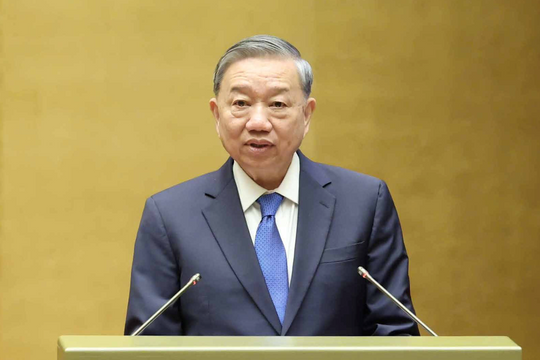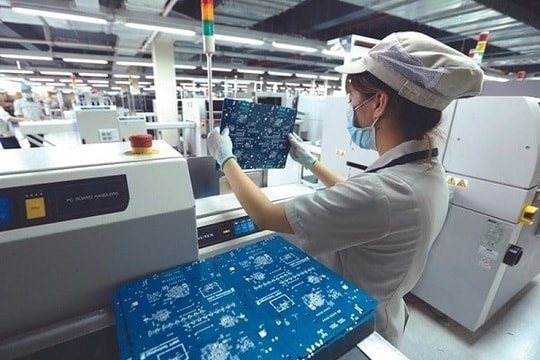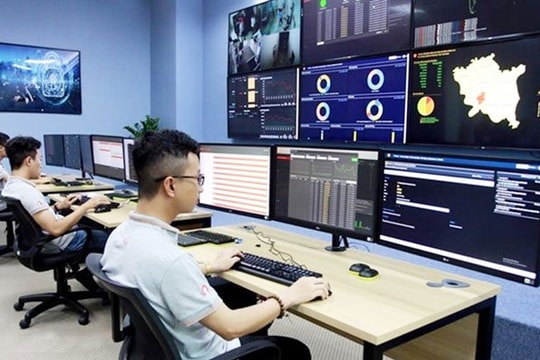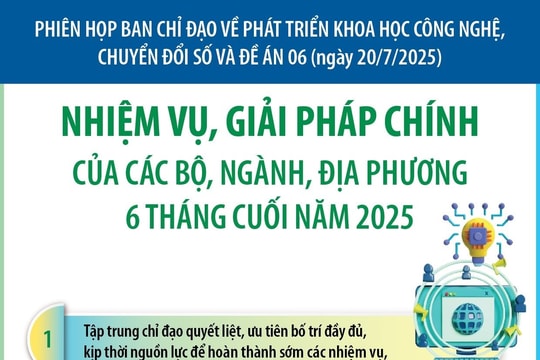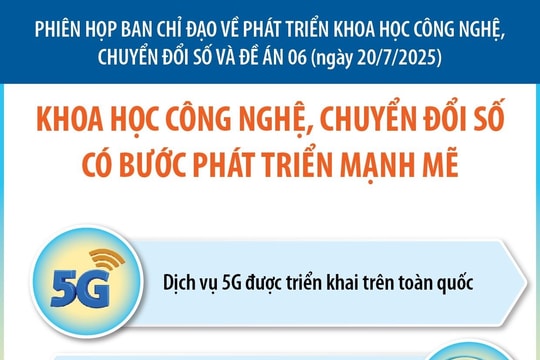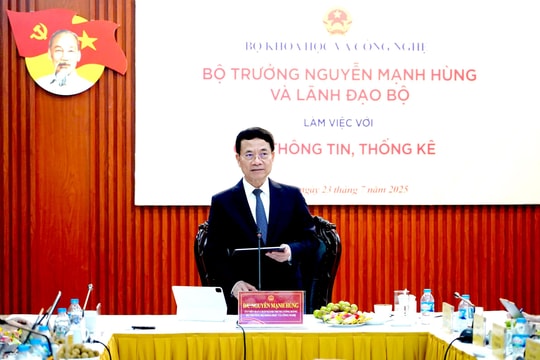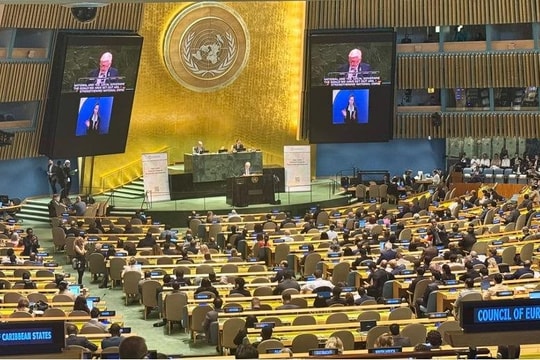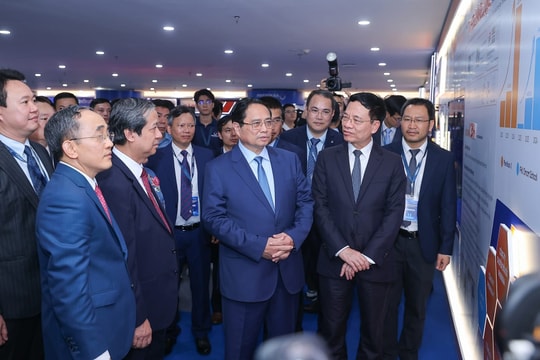SELECTED BY THE MINISTRY OF INFORMATION AND COMMUNICATIONS (MIC) FOR THE NATIONAL DIGITAL TRANSFORMATION PROGRAM
The MIC launched VAIS and Vbee, the two Vietnamese speech-to-text generators, using artificial intelligence (AI) on June 19th, 2020. These state-of-the-art platforms are applied to a wide range of products and services provided to the persons with vision and speech impairment. They, thereby, create great social impacts by enabling persons with disabilities to access and produce information.
The activity is part of the events to introduce "Make in Vietnam" digital products and platforms to realize the "National digital transformation program by 2025, with a vision to 2030",
On the sidelines of the event, Mr. Nguyen Huy Dung, Director General of the MIC's Department of Information Technology (currently the Deputy Minister of Information and Communications) said "through our assessment, it can be seen that Vietnamese digital platforms have the same quality as similar foreign products. We even do better in some niches. For example, Vietnamese solutions stand out in the field of Vietnamese speech-to-text processing; or Vietnamese online learning platforms are more flexible than the foreign ones and can be integrated with exams and educational management platforms".
"Inaddition,"MakeinVietnam"technologyplatformshaveaclearadvantageovertheinternationalonesintermsofpriceandspeedsinceVietnameseenterprisesusetheentiredomesticbandwidth",addedMr.Dung.
FROM JUST A TOOL FOR THE VISUALLY-IMPAIRED PERSONS TO A CUTTING-EDGE PLATFORM
Mr. Ho Minh Duc, CEO of Vbee, said that the Vietnamese text-to-speech with emotions was one of the research projects conducted by the research development team at Hanoi University of Science and Technology (HUST) since 2010. This project stemmed from a desire to build a tool for visually-impaired persons. They had to use low-quality foreign tools owing to the unavailability of Vietnamese ones at that time.
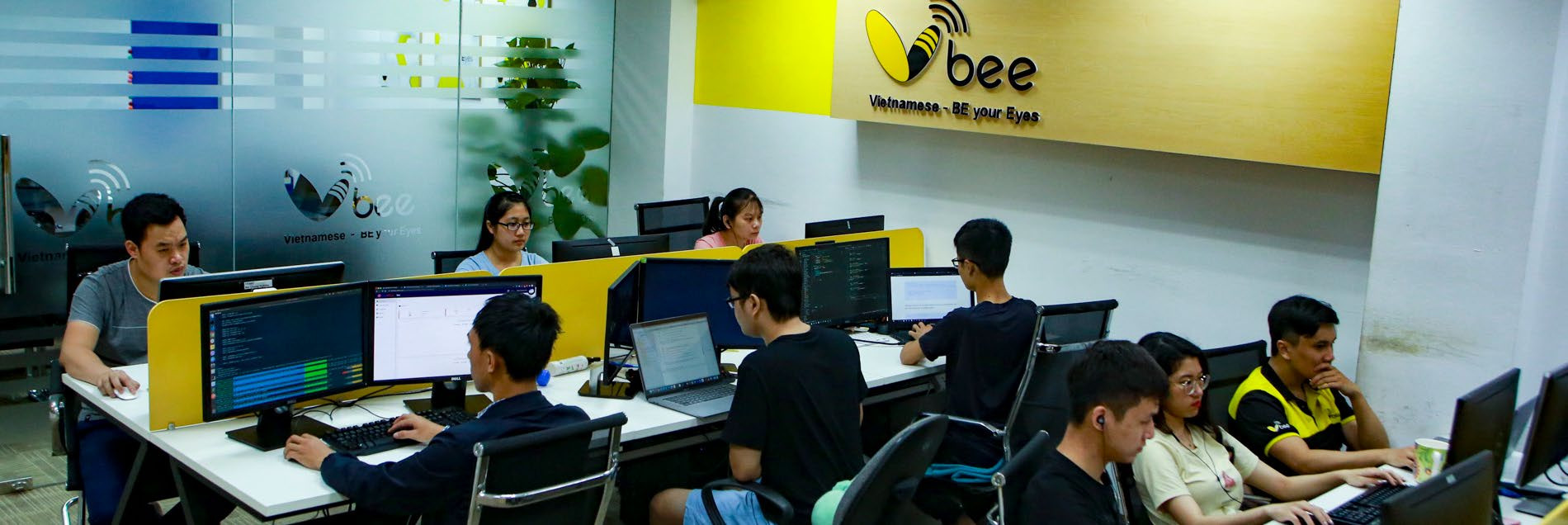
"Therefore, we launched the project with a wish to develop a tool in Vietnamese for the visually-impaired persons. And after a 10-year effort of the HUST's students and lecturers, Vbee was born," Mr. Duc shared the story about Vbee.
Discussing Vbee's accomplishments, Mr. Duc said that the biggest achievement was the core technology of artificial Vietnamese voice with emotions. Vbee also deals with issues related to characteristics of the Vietnamese language, such as regional accent, acronyms and loanwords. "We have convincingly solved these problems so that Vbee is commended for having quite a real voice. We hope that the core technology will expand to extensive services in the future", emphasized Mr. Duc.
Currently, Vbee is 95% similar to a human voice and may reach 98% in the near future. These metrics are assessed by the user community and language experts when they listen to Vbee's products and rate them on a given scale. Vbee will collect such statistics to evaluate the similarity of the product.
"EARNING AN EARLY FORTUNE", VBEE BROKE EVEN AFTER ONE YEAR SINCE ITS DEBUT
Through the cooperation with Lumi, Vbee has provided solutions related to audio media systems, audiobooks, and smart speakers as well as artificial switchboard solutions that change the way of customer care for the fields of banking, financial and credit institutions or e-commerce...".
"Unlike commercial products which can generate immediate sales, the Vbee development team understands that when building and developing this solution, they will have to invest even a great deal of money", shared Mr. Duc.
Fortunately, when Vbee commercializes its product, the market is facing difficulties resulted from the Covid-19 pandemic, so businesses must change the way they work and interact by cutting costs related to customer care, recording, etc. Therefore, enterprises have a great demand for switching to automated robotics and chatbot systems. That is the moment when Vbee's business model shines. Currently, Vbee is having monthly user and revenue growth rates of 200% and 300%, respectively.
For the company's short-term plan, according to its CEO, Vbee will become an artificial voice portal with all languages, in which Vietnamese is the core platform besides other languages such as English, Chinese, and Japanese in the near future. Next, Vbee wants to develop an ecosystem using the Vietnamese language to supply for the Vietnamese market.
Regarding users, Vbee focuses not only on B2B, B2C, but also B2A (Business to Anyone - aiming end-users, SMEs, and Enterprises).
IT IS TOUGH TO DEVELOP STARTUPS IN THE TECHNOLOGY, BUT IT IS EVEN MORE CHALLENGING TO TRANSFORM A SCIENCE PROJECT INTO A BUSINESS
Mr. Duc said that when starting a business with platform technology, the Vbee development team would have to encounter huge domestic and international competitors such as Viettel, FPT, VNG, Google, Amazon, etc.
So what makes Vbee special? The development team decided to take advantage of technology and voice. Vbee owns a core technology platform that has been researched on for more than 10 years by in-depth researchers with background on technology platforms and applications to deliver artificial voices. Therefore, it can be said that Vbee's first advantage is its status as the pioneer in the market because, during its debut, there were very few similar products in Vietnam.
The next advantage is that the Vbee team has extremely detailed research findings on artificial voices, which have been published by both national and international organizations.
The ultimate advantage is that Vbee has packed solutions and tools that are easy to use and friendly to users, partners, and businesses.
"Vbee reckons technologies and platforms as the keys to success and continuously conducts research to make the artificial voice increasingly Vietnamese-sounding with real emotions. Vbee also collaborates with other partners to neatly solve related problems to create a voice ecosystem, which has adequately clear sounds to differentiate itself from other products in the market", Mr. Duc stressed.
Mr. Duc also added that it was difficult to develop a technology startup, yet it was even more uphill to formulate such a business from a scientific research. Because, until now, the number of scientific research topics that are successfully commercialized can be likened to a drop in the ocean. However, the development team has understood that Vbee has advantages in terms of human and knowledge with a team of scientists, students, and lecturers from the HUST, thereby creating a strong point of technology.
Next, when Vbee entered the market, artificial Vietnamese language processing solutions were almost nonexistent. Vbee thus played a pioneering role in the competition. This pioneering advantage makes it easier for Vbee to reach users.
However, Vbee also faces some difficulties, firstly with capital issues. To solve this problem, the development team has sought support from investment funds such as angel investment funds, home, and overseas investment funds.
"FULLY FAVORABLE CONDITIONS" FOR THE ARTIFICIAL VOICE MARKET
According to Mr. Duc, the global "text-to-speech" market has existed for more than 10 years. However, even in foreign countries, commercial products were only strongly developed in the past 2-3 years. Notably, these products show the most impressive growth in 2019 and are becoming the dominant trend since 2020.
Besides, services using voice and interaction through voice have emerged. Mr. Duc also emphasized that, other than the advantage with regard to technology factor, this is also the best time to apply artificial voices in the market.
Commenting on the development of AI in general and the artificial voice in Vietnam in particular, Mr. Duc asserted that AI in Vietnam has been developing strongly, but only for fields that the world had certain successes in such as computer vision, text to speech, speech to text, AI in industrial zones, banks or eKYC, digital banking, payment, etc. "The good news is that these solutions in Vietnam have become a prevailing trend as many research groups and startups begin to deploy and package them", said Mr. Duc.
Moreover, the Vietnamese market also has a great demand for these products when banks must digitize and transform themselves, and customer care systems of e-commerce must be automated. Therefore, this is the once-in-a-lifetime chance for Vietnamese products to be successful in the domestic market.
BENEFITS OF SHARING DATA FOR AI DEVELOPMENT
To crack this, Mr. Duc calls for a combination of products and ecosystems, and more support from the government to develop an ecosystem which is large enough for the Vietnamese startups to deploy. Currently, the government's Project 844 and programs such as Make in Vietnam and e-Government have become a message for startups to be much more confident For the AI field, the lack of big data is still an aching problem. Recently, the Digitalized Vietnamese Knowledge System has tried to develop a common database and a platform that allow all businesses, agencies and ministries to contribute data to power the research on big data and AI of Vietnam, and shorten the research time. It will be impractical for each enterprise to do so on its own due to the lack of data and capital.
In addition to data, Vietnam does not have much training in AI development. Although the HUST has pioneered in AI training with courses on researching and applying new technologies to training, it is essential to have more in-depth and advanced training for professionals in the AI industry. At the same time, Vietnam also needs to interact with national and international leading professors to exchange and learn knowledge and experience about technology.
According to Mr. Duc, startups in AI or core technologies have the advantage of easily calling for capital investment because core or new technologies are sought for by many organizations and even receive numerous orders from foreign funds. Therefore, if core technologies are good enough, the chance of raising capital will be considerably high. For instance, Vbee successfully raised initial capital right from its foundation. Nevertheless, startups must prove other factors such as sales and community contribution apart from core technology in order to raise capital in the following rounds./.




